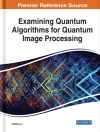This book introduces the state-of-the-art algorithms for data and computation privacy. It mainly focuses on searchable symmetric encryption algorithms and privacy preserving multi-party computation algorithms. This book also introduces algorithms for breaking privacy, and gives intuition on how to design algorithm to counter privacy attacks. Some well-designed differential privacy algorithms are also included in this book.
Driven by lower cost, higher reliability, better performance, and faster deployment, data and computing services are increasingly outsourced to clouds. In this computing paradigm, one often has to store privacy sensitive data at parties, that cannot fully trust and perform privacy sensitive computation with parties that again cannot fully trust. For both scenarios, preserving data privacy and computation privacy is extremely important. After the Facebook–Cambridge Analytical data scandal and the implementation of the General Data Protection Regulation by European Union, users are becoming more privacy aware and more concerned with their privacy in this digital world.
This book targets database engineers, cloud computing engineers and researchers working in this field. Advanced-level students studying computer science and electrical engineering will also find this book useful as a reference or secondary text.
Inhoudsopgave
Part I Privacy Preserving Queries.- Range Queries over Encrypted Data.- Fast and Scalable Range and Keyword Query Processing over
Encrypted Data with Provable Adaptive Security.- Nearest Neighbor Queries over Encrypted Data.- K-nearest Neighbor Queries over Encrypted Data.- Top-k Queries for Two-tiered Sensor Networks.- Part II Privacy Preserving Computation.- Collaborative Enforcement of Firewall Policies in Virtual Private Networks.- Privacy Preserving Quantification of Cross-Domain Network Reachability.- Cross-Domain Privacy-Preserving Cooperative Firewall Optimization.- Privacy Preserving String Matching for Cloud Computing.- Privacy Preserving Information Hub Identification in Social Networks.- Part III Differential Privacy.- Publishing Social Network Data with Privacy Guarantees.- Predictable Privacy-Preserving Mobile Crowd Sensing.- Differentially Private and Budget Limited Bandit Learning over Matroids.- Part IV Breaking Privacy.- Breaching Privacy in Encrypted Instant Messaging Networks.
Over de auteur
Alex Liu received his Ph.D. degree in Computer Science from The University of Texas at Austin in 2006, and is currently the Chief Scientist of Ant Financial, part of Alibaba Group. Before joining Ant Financial, he was a Professor of the Department of Computer Science and Engineering at Michigan State University. He received the IEEE & IFIP William C. Carter Award in 2004, a National Science Foundation CAREER award in 2009, the Michigan State University Withrow Distinguished Scholar (Junior) Award in 2011, and the Michigan State University Withrow Distinguished Scholar (Senior) Award in 2019. He has served as an Editor for IEEE/ACM Transactions on Networking, and he is currently an Associate Editor for IEEE Transactions on Dependable and Secure Computing, IEEE Transactions on Mobile Computing, and an Area Editor for Computer Communications. He has served as the TPC Co-Chair for ICNP 2014 and IFIP Networking 2019. He received Best Paper Awards from SECON-2018, ICNP-2012, SRDS-2012, and LISA-2010. His research interests focus on networking, security, and privacy. He is an IEEE Fellow and an ACM Distinguished Scientist.
Rui Li received his Ph.D. Degree in Computer Science from Hunan University in 2012. He is currently an Associate Professor of Dongguan University of Technology. He received the Outstanding Young Teacher Award of Hunan Province in 2009 and the Distinguished Young Teacher Award by Luanxiong Liu Funding in 2010. He received a core young teacher award of Hunan Province in 2015. His research interests are in cloud computing, sensor networks and security.












